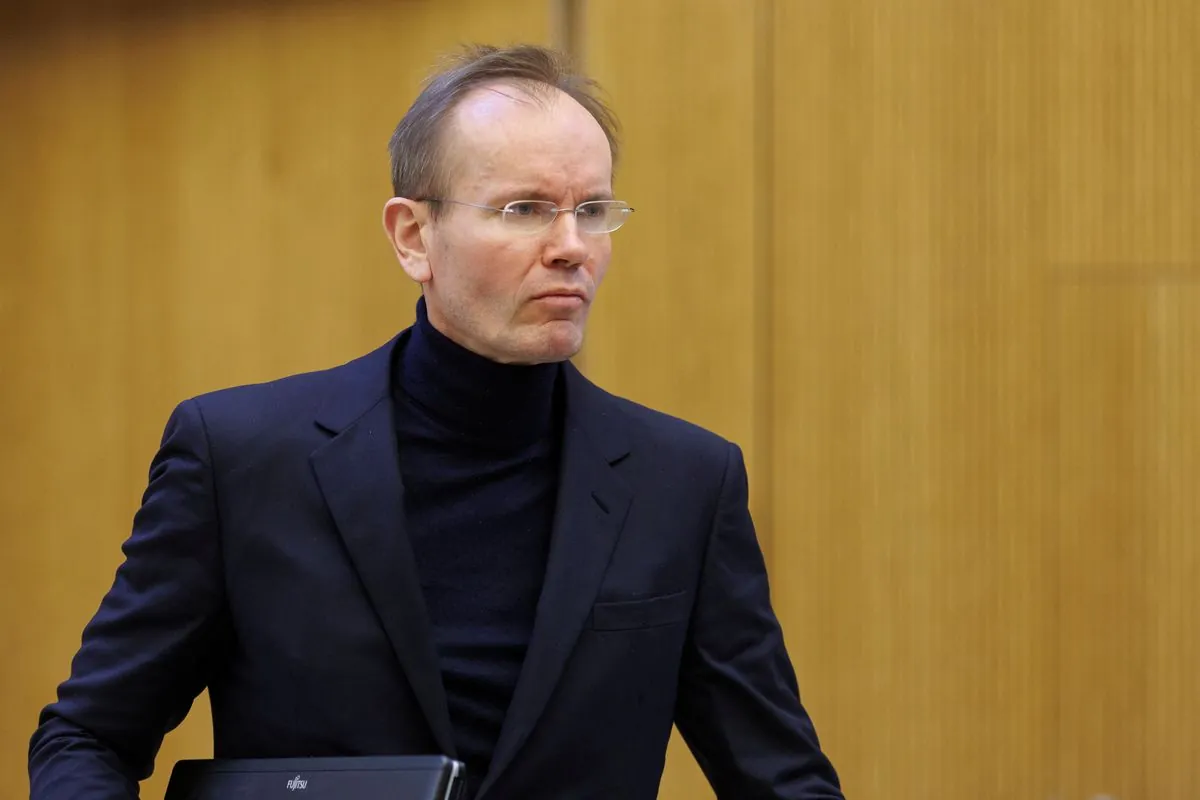Wirecard Ex-Executives Ordered to Pay €140 Million in Damages
Former Wirecard CEO and two executives ordered to pay €140 million for unpaid loans. This verdict is separate from the ongoing fraud trial related to the company's 2020 collapse.

In a significant development in the ongoing Wirecard saga, a Munich court has ordered Markus Braun, the former CEO of the defunct German payments firm, along with two other executives, to pay €140 million ($155 million) in damages. This ruling, issued on September 5, 2024, pertains to loans provided to a Singaporean business partner that were never repaid.
The court upheld claims brought forth by insolvency administrator Michael Jaffe, asserting that Braun and his colleagues had breached their fiduciary duties in approving these loans. It's important to note that this verdict is distinct from the primary trial against Braun and other executives concerning Wirecard's downfall.
Wirecard's collapse in June 2020 sent shockwaves through the German financial sector. The company, once valued at €24 billion and a member of the prestigious DAX index, was found to have a €1.9 billion ($2.1 billion) discrepancy in its balance sheet. This event marked the first insolvency of a DAX-listed company and prompted significant reforms in German financial regulation.

The scandal has raised questions about the effectiveness of corporate oversight and the role of auditors. EY, Wirecard's auditor, failed to detect the fraud for years, leading to increased scrutiny of audit practices. Additionally, the case highlighted the crucial role of investigative journalism, as the Financial Times was instrumental in exposing Wirecard's fraudulent activities.
Currently, Braun, along with deputy finance chief Stephan von Erffa and Wirecard's Asia representative Oliver Bellenhaus, are standing trial in Munich. They face charges of fraud and falsifying financial statements. Braun maintains his innocence in the face of these allegations.
"I deny all wrongdoing."
The Wirecard scandal has had far-reaching consequences. It has affected thousands of merchants and cardholders worldwide, prompted calls for reform of Germany's corporate governance system, and led to increased scrutiny of fintech companies globally. The case has also underscored the importance of whistleblowers in uncovering corporate fraud.
In a related development, German prosecutors charged two additional former Wirecard executives with multiple counts of embezzlement in August 2024. Meanwhile, Jaffe and investors are pursuing various civil lawsuits against Wirecard managers and auditors, seeking further damages.
As the legal proceedings continue, the Wirecard case serves as a stark reminder of the need for robust financial oversight and the potential consequences of corporate malfeasance. The ongoing investigations and trials are likely to have lasting implications for corporate governance and financial regulation in Germany and beyond.


































